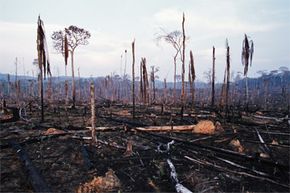Earth is a planet teeming with life, boasting an incredible array of species. While we've already identified nearly 2 million individual species, it's estimated that over 9 million more are yet to be discovered. This vast biodiversity is not just a subject of academic interest; it's essential for human existence. That's why there's concern about threats to biodiversity.
Take, for example, the role of microorganisms like worms and bacteria in breaking down organic waste and enriching the soil with nitrogen — a process crucial to modern agriculture. Furthermore, pharmaceutical companies rely on a diverse range of plants and animals to synthesize medications, and we can only speculate about the untapped medicinal potential within Earth's undiscovered species.
Advertisement
But the significance of biodiversity extends beyond agriculture and medicine. Earth's plant life plays a vital role in mitigating global warming by absorbing carbon dioxide. Astonishingly, nearly 90 percent of these plants, including about two-thirds of our food crops, depend on approximately 190,000 species of pollinating insects. In fact, when we quantify the value of services provided by Earth's plants and animals, considering everything from ecotourism to biological pest control, the total reaches a staggering $2.9 trillion.

